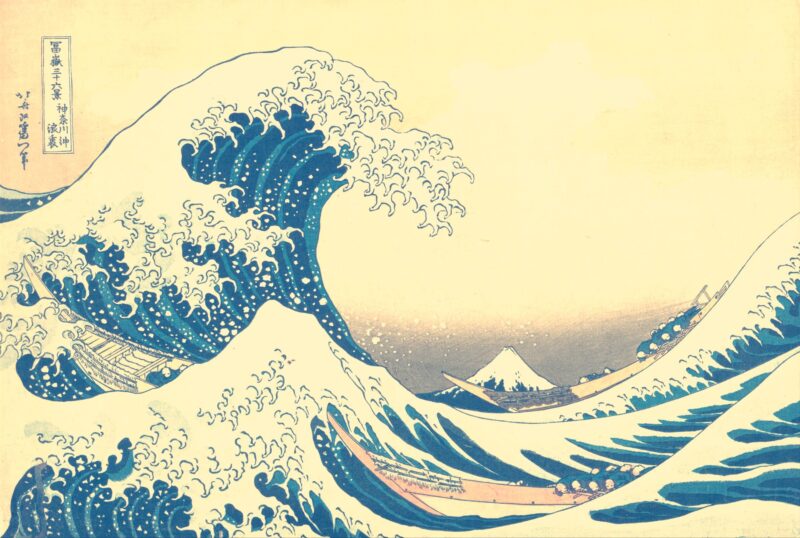“That this blue exists makes my life a remarkable one, just to have seen it. […] I returned there yesterday and stood again upon the mountain.”
― Maggie Nelson, Bluets
The wave is twelve meters high. The boats are oshiokuri-bune; each of the vessels requires eight to ten men to manoeuvre. These thirty fishermen earn their living by the day and day’s catch. Onshore, they have places at dinner tables waiting for them.
Les gaffes de Biden alimentent les questions sur sa puissance contre Trump cialis generique tadalafil 20 mg les législateurs de la floride décident de limiter la puissance de la marijuana médicale | feuilluThe faces of the men look the same. White. Their pasts and thoughts and loves left on land are not depicted. Only the wave, towering, foaming, falling like snow, and a mountain in the distance.
Mount Fuji is an active basalt composite stratovolcano, located on the island of Honshū in Japan. It stands on three tectonic plates and 10,000 years of boiling magma, 3,700 metres high,
Prussian blue, snow-capped, quiet.
Katsushika Hokusai painted The Great Wave off Kanawaga at seventy and the peak of his life and career, the first of a series he would call Thirty-six Views of Mount Fuji. Over the next two years, he made thirty-six woodblock prints of scenes and seasons of human lives, Mount Fuji in all of them:
Workers mending a roof; fishermen filling baskets with seabass and tuna; pilgrims picnicking in a garden. Cherry blossoms; falling leaves. A peasant leading a horse, heavy with saddlebags; light sky. Fleeting, firefly moments.
Flickering and evanescent. Travelers on a road. A sudden gust of wind takes away all they own. Their possessions fly off, over the rice paddies. A fluttering, vanishing of papers, livelihoods, and meaning.
Two climbers on a slope, on their knees, fighting fatigue, the weight of their loads, and that Prussian blue night falling. Far behind and below, the other two look onto what awaits. Little figures, little lives. Despair is hard to paint.
Over the clouds, resplendent, Mount Fuji fills the whole space.
Hokusai says look carefully.
He says pay attention, notice.
Those views are not of the mountain, but from it.
He says there is no end to seeing.
Not thirty-six, infinite, with every subtle change of light, moment by glinting moment.
He says every one of us is a child,
every one of us is ancient
every one of us has a body.
He says every one of us is frightened.
But in every scene, the mountain stands. Blue, snow-capped, quiet, gorgeous.
He says keep looking, stay curious.
He says keep doing what you love.
Keep mending that roof, filling those baskets. Going. On boats, on horses, on foot. On picnics, even in January snow and darkness. Keeping feeling, looking up, noticing the view: cherry blossoms, falling leaves. Mountains and waves and great fireflies flickering.
